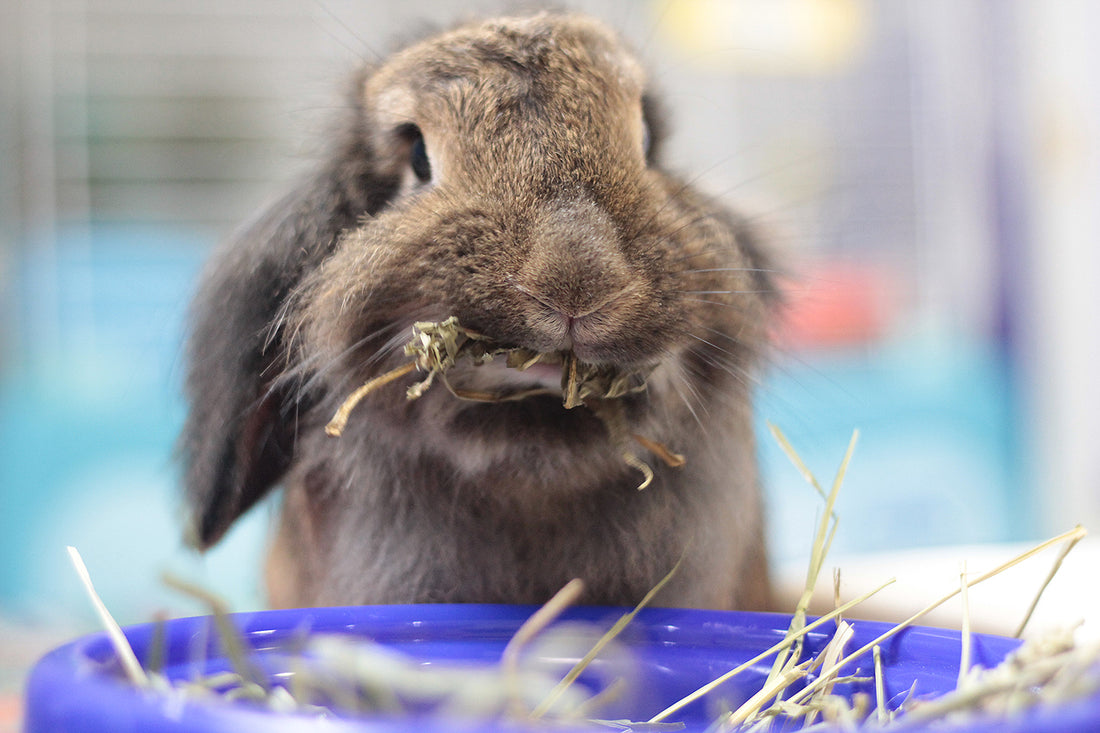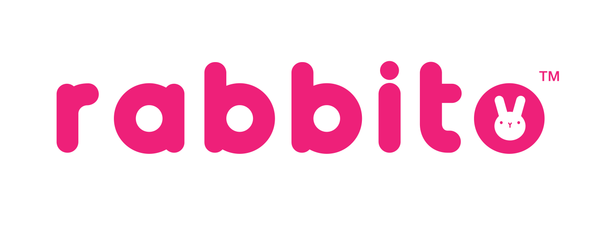
Food and Diet
Contrary to what people in the Philippines know, pellets are NOT supposed to be a rabbit’s staple food. Instead, rabbits should be fed with unlimited hay. Hay provides them with all the nutrients and fiber that they need. When pellets are a rabbit’s staple, chances are they become more prone to certain illnesses.
Here’s a simple guide to help you understand a rabbit’s basic diet:
- 6 months and below: Unlimited alfalfa hay and unlimited pellets
- 3 months: Introduce vegetables one at a time and in small quantities
- 7 months: Introduce other types of hay, gradually decrease intake of pellets and alfalfa hay, and introduce fruits and treats but only to be given occasionally with maximum of 1-2 tablespoons a day
- 1 year old and above: Unlimited timothy hay, grass hay or oat hay, pellets should be a maximum of ½ cup a day, and vegetables increased to at least 2 cups a day

Remember that HAY should be the the main food of your rabbit no matter how old they are. Alfalfa hay is best for young rabbits as it is rich in protein, calcium and fat - best for growing babies. Too much of these nutrients are bad for adult rabbits, that's why it's recommended to transition to timothy hay when rabbits reach 1 year old.
To read about why hay is important in a rabbit's diet, please read about it here: WHY HAY IS NUMBER 1 FOR RABBITS
When introducing a new vegetable or fruit, remember to offer it to them one at a time and in very small quantities. Check for any signs of diarrhea and discontinue giving it at the first signs. Remember to check if the vegetable or fruit is rabbit-friendly before giving it to your rabbit.
Local veggies and fruits that are safe for rabbits:
- Apple
- Arugula
- Banana
- Basil
- Bok Choy
- Carrot (more of a treat, than a staple veggie)
- Cilantro (Wansoy)
- Dill
- Fennel
- Mango
- Melon
- Mint
- Mustard Greens (Mustasa)
- Papaya
- Parsley (not to be fed everyday)
- Pineapple
- Romaine Lettuce (NOT Iceberg!)
- Watercress
- Wheatgrass
Under any circumstances, please DO NOT feed the following foods to your rabbit as they might be fatal:
- Coffee Beans
- Chocolate
- House Plants (Since most are toxic to rabbits)
- Iceberg Lettuce
- Onions
For the best pellets, choose one that is high in fiber (at least 22%). Avoid those with nuts, fruits and other treats if you can, or at least separate these and treat them as your rabbit’s occasional rewards. Alfalfa hay-based pellets are best for young rabbits, while timothy-hay based ones are best for adult rabbits. When changing your type or brand of pellets, it's important to first mix the new and the old ones first. Then, gradually decrease the amount of the old pellets for your rabbit to properly transition to the new pellets.
Aside from unlimited hay, rabbits also need unlimited access to clean water. You can either offer in a bowl or in a drinking bottle, whichever your little one prefers more.
SOURCES:
http://rabbit.org/suggested-vegetables-and-fruits-for-a-rabbit-diet/
